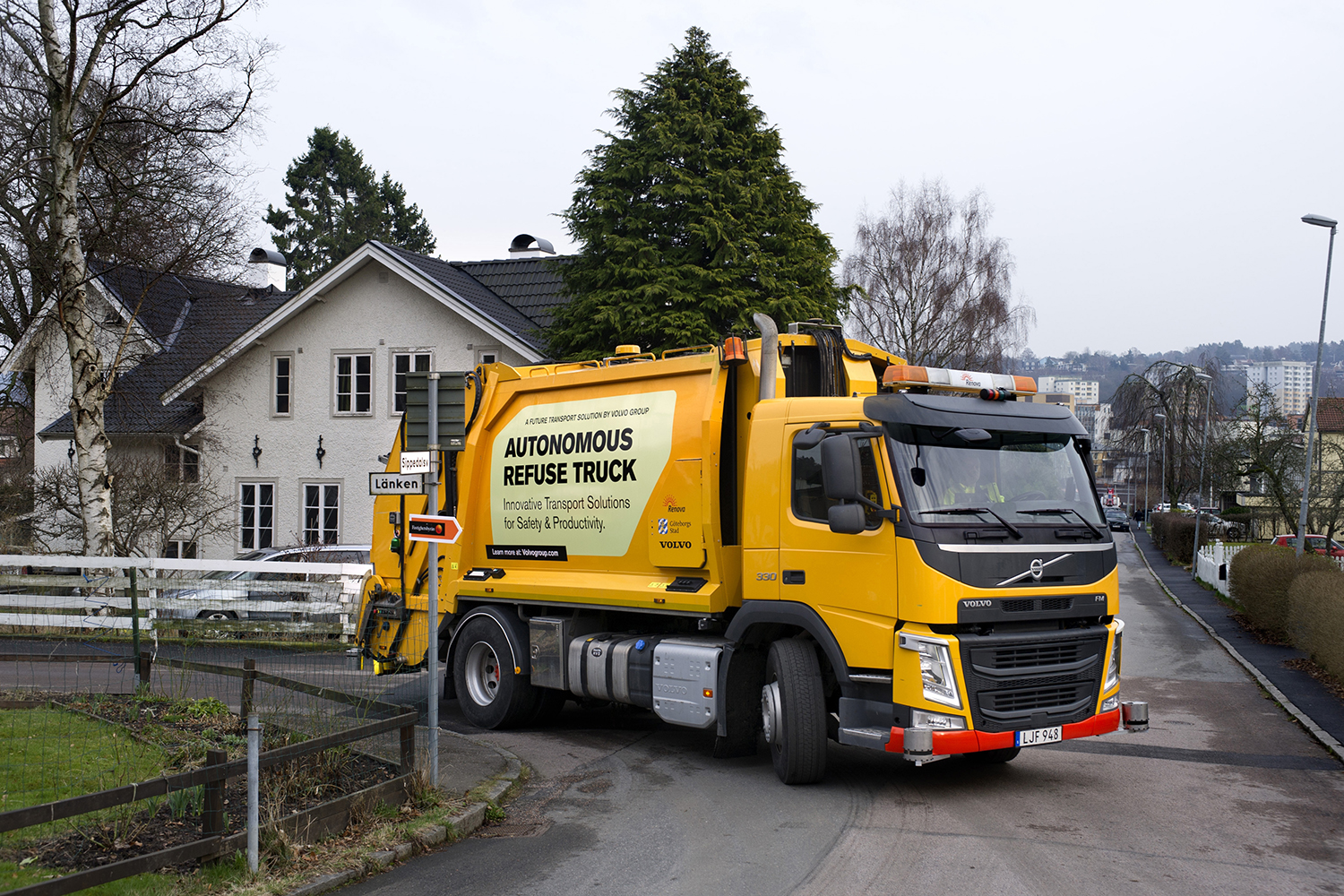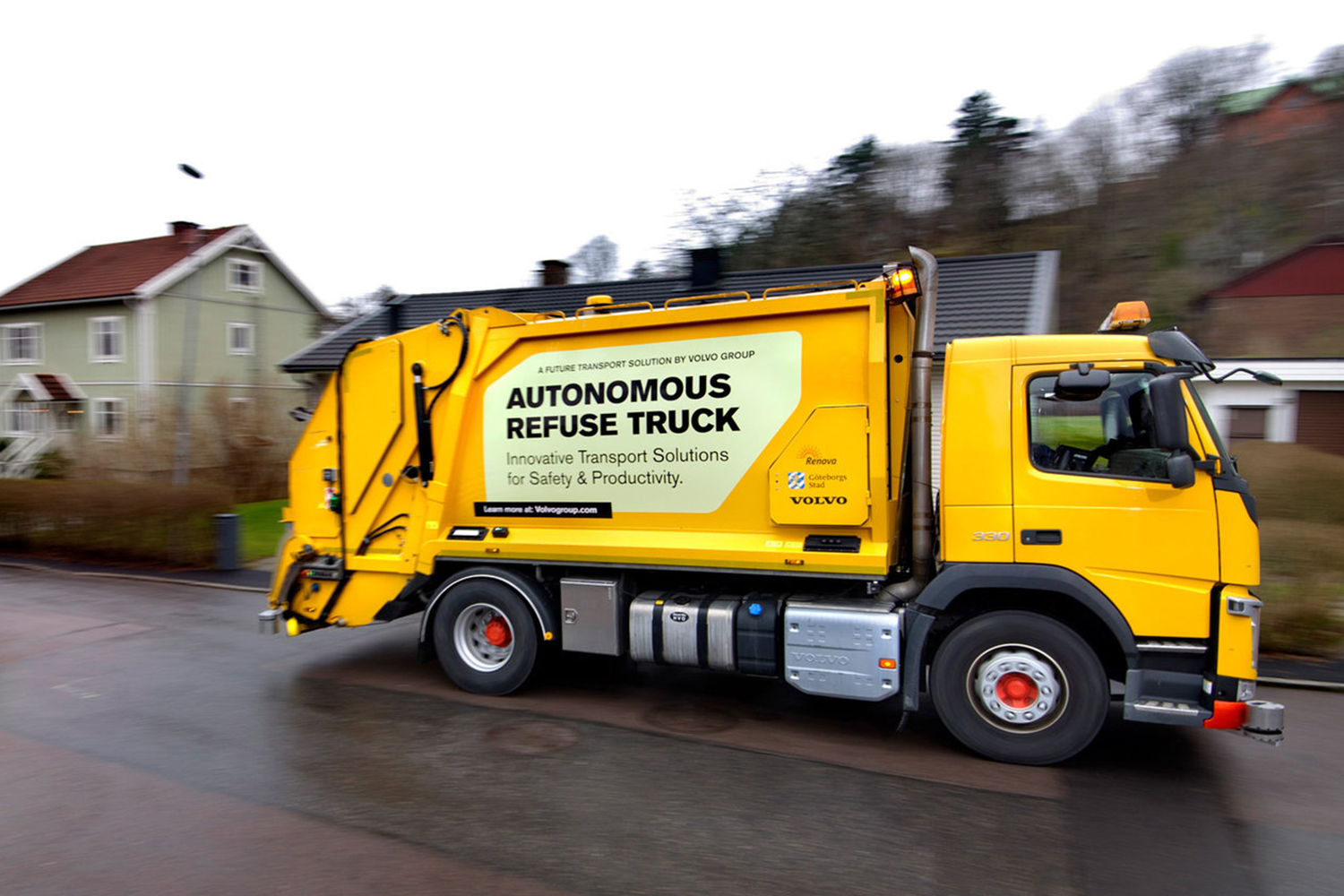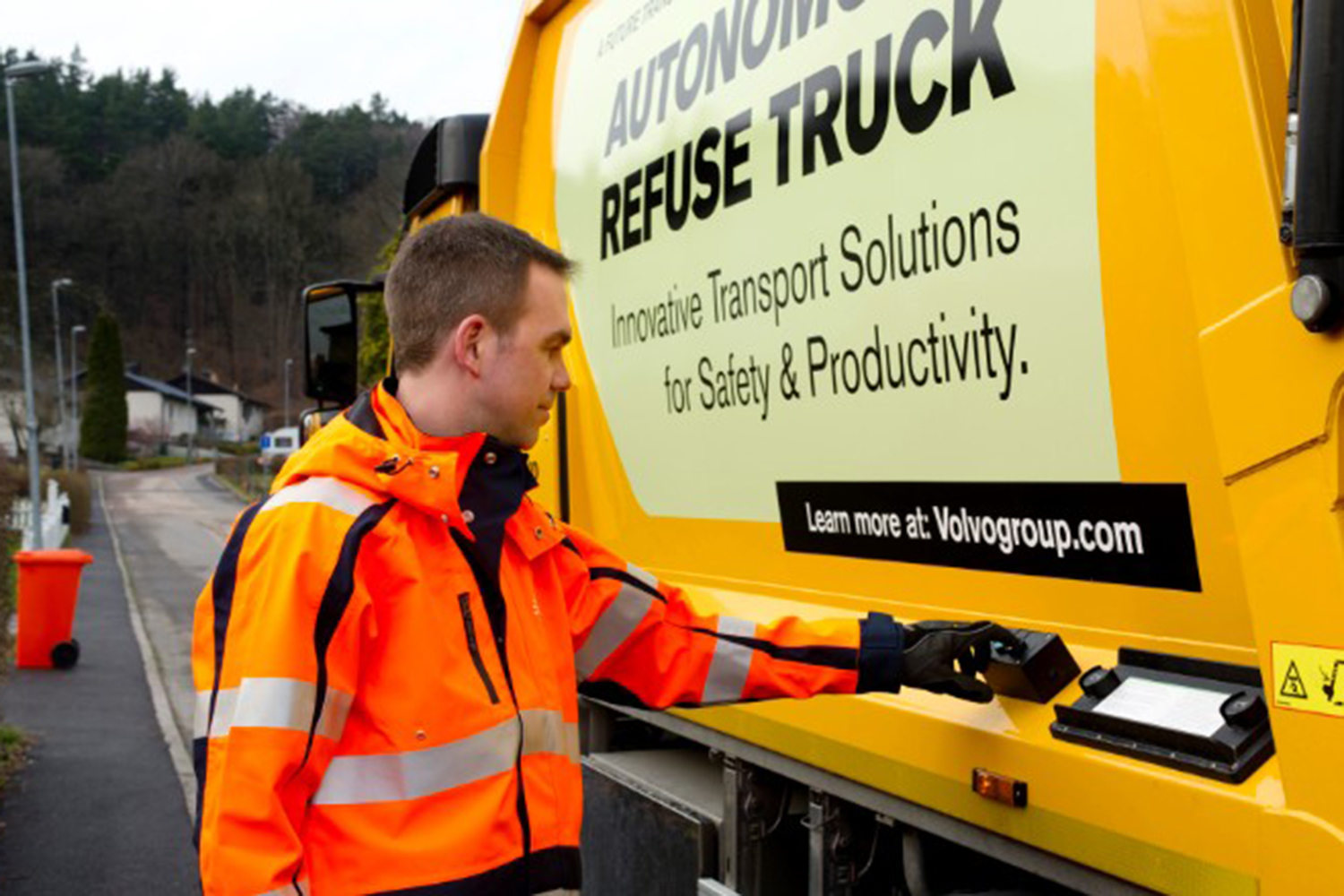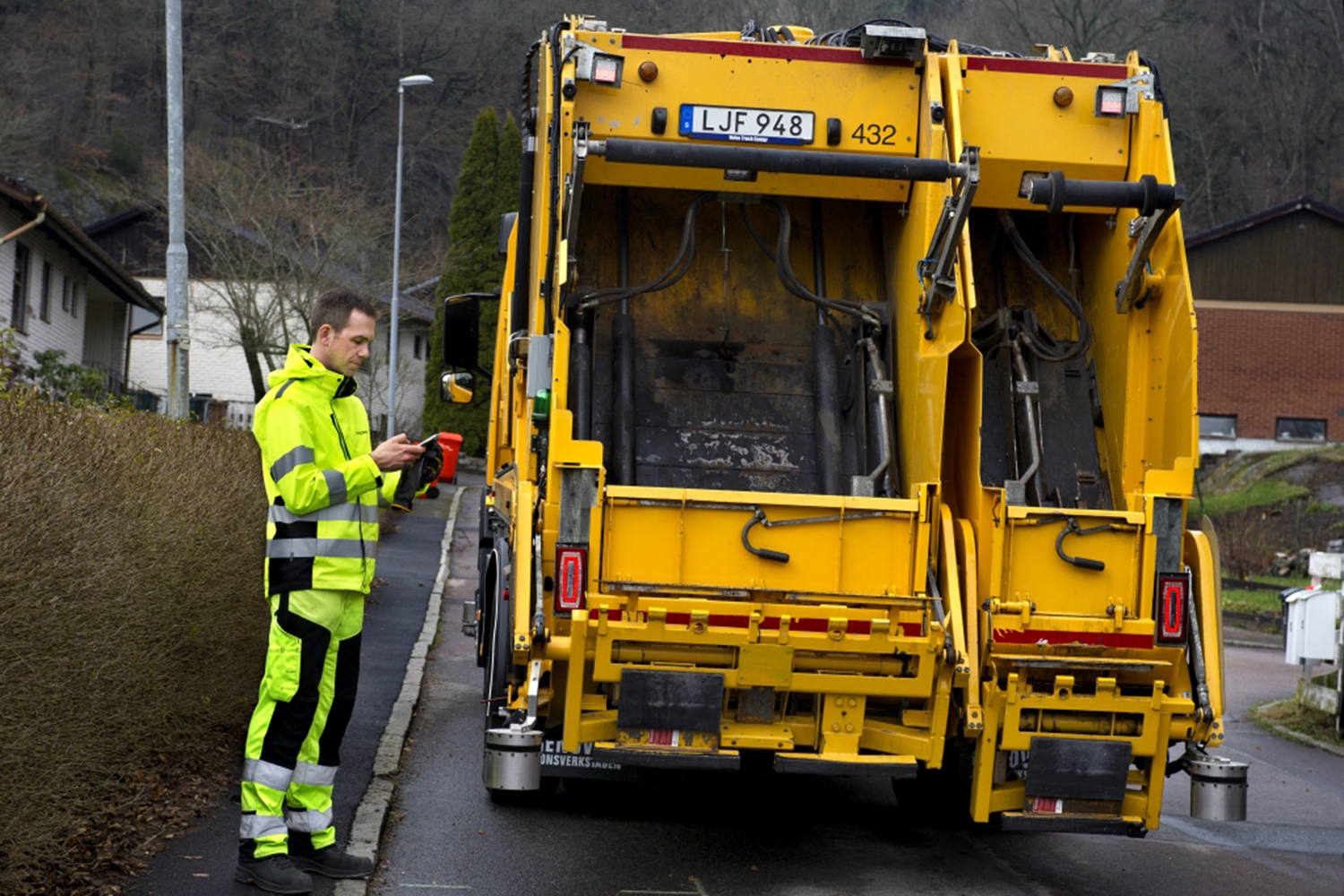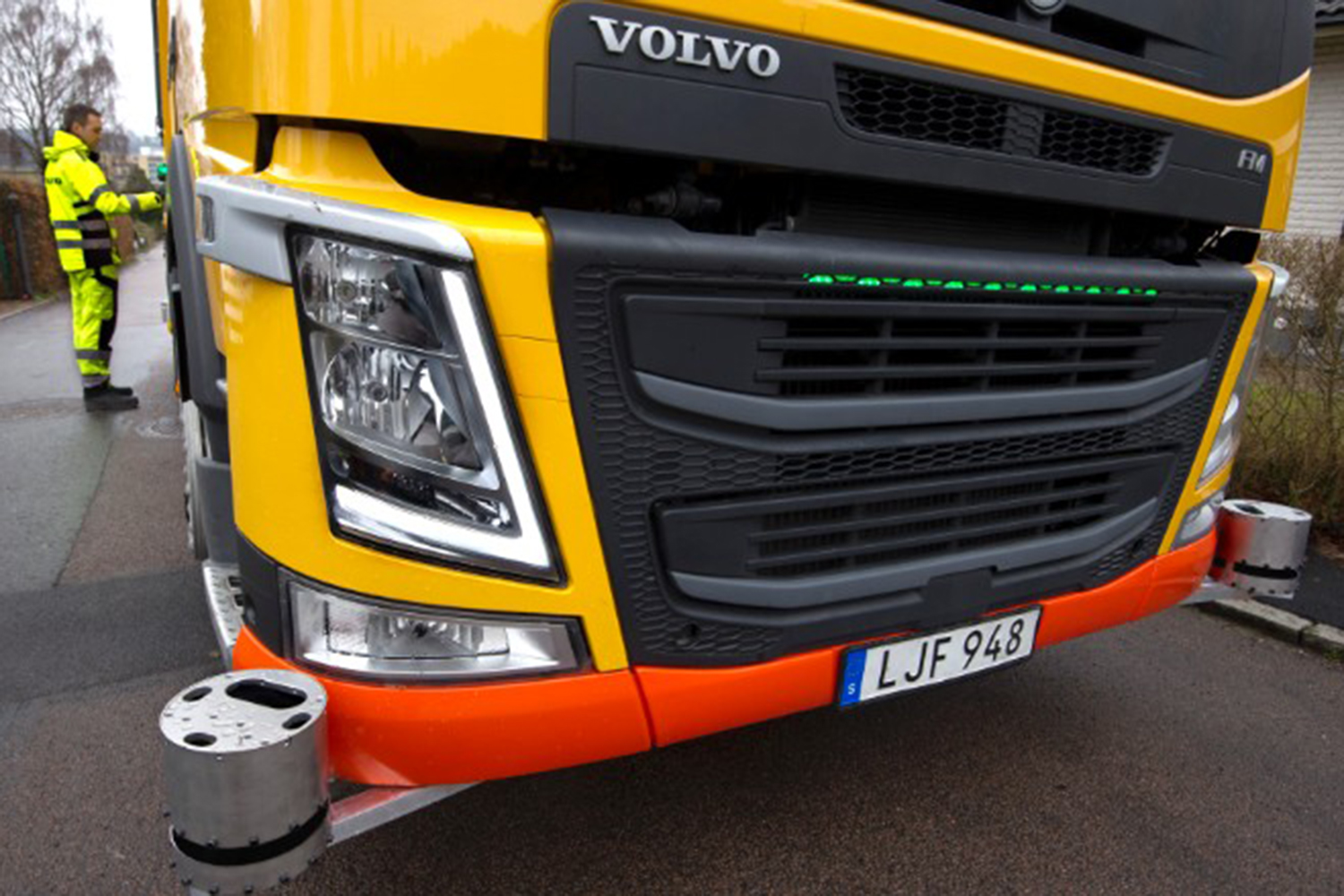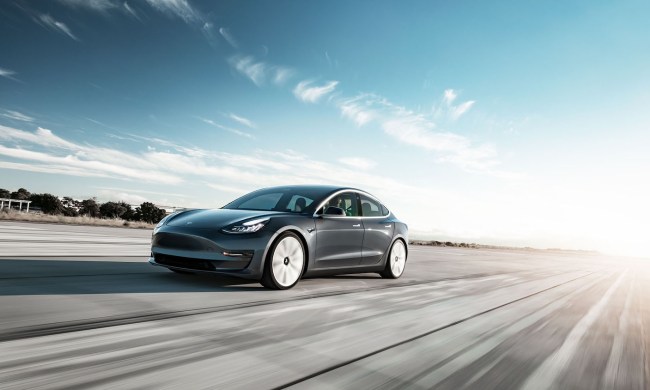Volvo announced last week that it has started testing a self-driving garbage truck in partnership with Swedish waste and recycling company Renova. Rather than entirely automating the task, the truck is designed to work alongside a trash collector, reversing from house to house to make garbage collection more efficient.
“There is amazing potential to transform the swift pace of technical developments in automation into practical benefits for customers and, more broadly, society in general,” Lars Stenqvist, Chief Technology Officer at Volvo Group, said in a statement.
“Our self-driving refuse truck is leading the way in this field globally, and one of several exciting autonomous innovations we are working with right now,” he added.
The truck uses sensors and GPS to map each new neighborhood it enters. It reverses to follow the trash collector as he/she walks between trash cans, meaning the trash collector doesn’t waste timing walking around the vehicle, allowing him/her to spend more time out of the cab. Volvo thinks this could make collection safer for the collector and those around him.
“One important benefit of the new technology is a reduction in the risk of occupational injuries, such as wear in knee joints – otherwise a common ailment among staff working with refuse collection,” said Stenqvist.
Volvo’s garbage truck borrows much of its technology from the company’s autonomous mining vehicle, which it unveiled last year. It is equipped with sensors that help it detect objects in its surroundings and navigate around them safely.
Beyond improving efficiency, Volvo claims its autonomous truck will be more sustainable than traditional methods since it is designed for optimum performance, steering, and speed. These combined features would help decrease emissions and fuel consumption.
The trials will run until the end of 2017.
